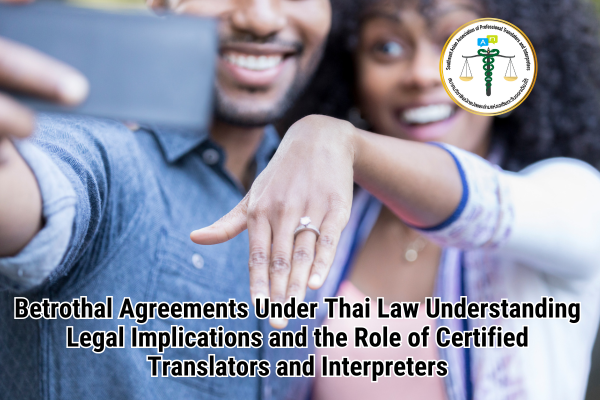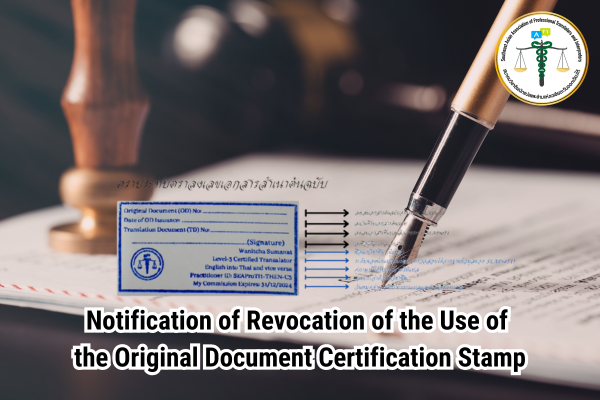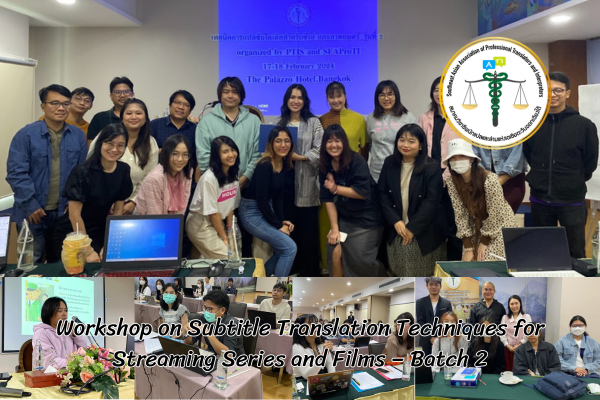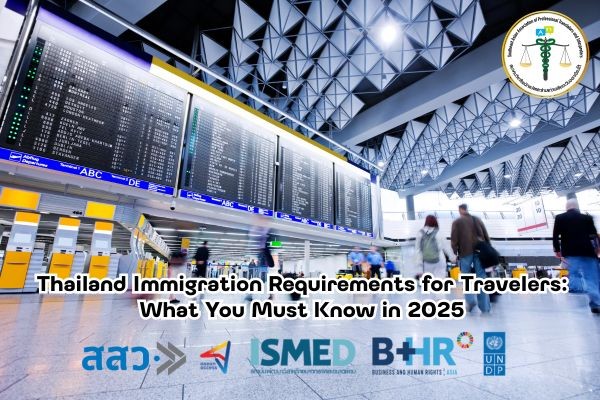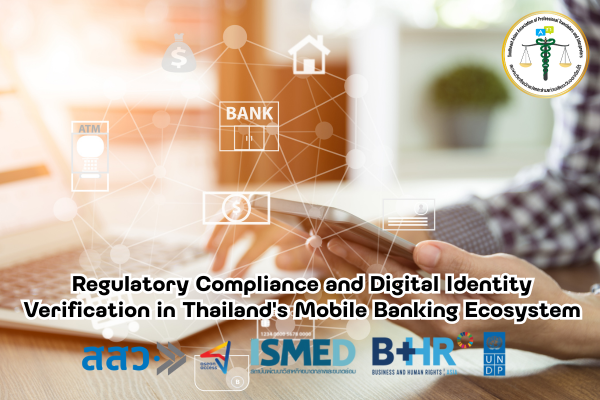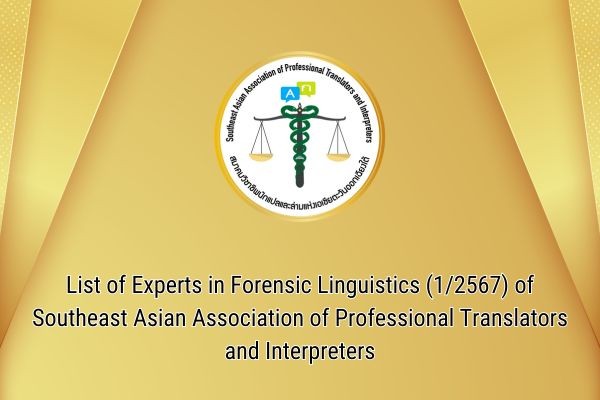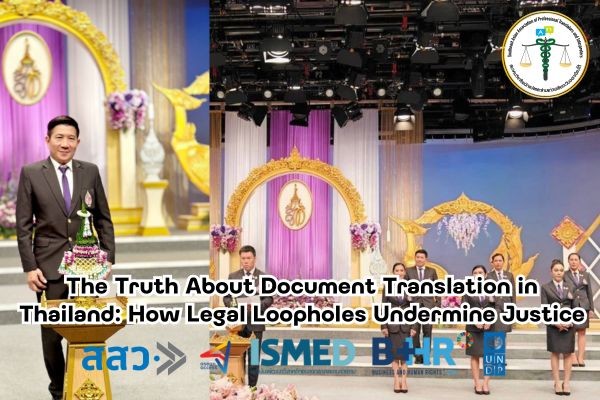Betrothal Agreements Under Thai Law:
Understanding Legal Implications and the Role of Certified Translators and Interpreters
22 March 2026, Bangkok – A Thai betrothal agreement (สัญญาหมั้น) functions as both a cultural tradition and a legal contract that carries important implications within Thai legal systems. Before getting married in Thailand, Thai citizens and foreign nationals must understand the complex legal aspects of betrothal agreements and their potential consequences.
What is a Betrothal Agreement?
The Thai Civil and Commercial Code Sections 1439 and 1440 state that a betrothal agreement is formed through a legal promise between two individuals to marry. The agreement becomes legally enforceable when the groom gives the bride “khongman” (ของหมั้น) property, which serves as either a reverse dowry or bride price upon betrothal.
The party suffering from a breach of this agreement can demand compensation from the party who broke it.
- Injury to Body or Reputation: The marriage agreement may require damages for personal dignity violations and emotional distress.
- Expenses Incurred: Costs incurred while preparing for the marriage.
Measures Taken Regarding Property or Occupation: The steps taken to quit a job or modify business operations in preparation for marriage.
- Important Case Example: Thai Supreme Court Decision No. 3366/2525
The Supreme Court decided to support the bride because the groom neglected to officially register their marriage after being betrothed and having a child together. The court considered:
- Injury to Reputation: The court decided to award the bride 200,000 baht based on her educational background and professional career, her family context, and the traditional Chinese cultural shame resulting from having a child without being married.
- Preparation Measures: The bride left her job to support her husband and take care of home responsibilities. She received financial compensation of 14,567 baht between the contractual breach and securing her subsequent employment.
Certified Translators and Interpreters Serve as Essential Professionals
Foreign nationals or intercultural couples need clear and accurate communication to navigate the Thai legal system successfully. Certified translators, alongside translation certification providers and certified interpreters, prove essential in these situations.
Betrothal agreements and marriage contracts require precise translations, which certified translators provide for legal accuracy. Their accurate translation delivers clear and legally valid documents which help couples prevent misunderstandings that might cause legal disputes later.
Translation certification providers authenticate translated documents to ensure they adhere to the legal requirements demanded by Thai authorities. Legal documents must include this certification for submission to judicial bodies or government offices.
Certified interpreters help communicate clearly throughout legal consultations, court proceedings, and negotiations. They help all parties understand their legal rights and responsibilities and the potential outcomes of violating a betrothal agreement.
Final Recommendations
Seeking advice from skilled legal professionals proves essential for anyone planning to marry or handle a betrothal agreement in Thailand. Using certified translators and interpreters from trusted sources recognized by the Southeast Asian Association of Professional Translators and Interpreters (SEAProTI) ensures proper interpretation and adherence to Thai legal standards.
Through proactive management of legal and linguistic factors, couples gain confidence in handling betrothal agreements while minimizing risks related to possible breaches or misunderstandings.
SEAProTI’s certified translators, translation certification providers, and certified interpreters:
The Southeast Asian Association of Professional Translators and Interpreters (SEAProTI) has officially announced the criteria and qualifications for individuals to register as “Certified Translators,” “Translation Certification Providers,” and “Certified Interpreters” under the association’s regulations. These guidelines are detailed in Sections 9 and 10 of the Royal Thai Government Gazette, issued by the Secretariat of the Cabinet under the Office of the Prime Minister of the Kingdom of Thailand, dated July 25, 2024, Volume 141, Part 66 Ng, Page 100.
To read the full publication, visit the Royal Thai Government Gazette
สัญญาหมั้นตามกฎหมายไทย: ข้อควรรู้ทางกฎหมายและบทบาทของนักแปลรับรองและล่ามรับรอง
22 มีนาคม 2568, กรุงเทพมหานคร – ในประเทศไทย สัญญาหมั้นไม่ได้เป็นเพียงประเพณีทางวัฒนธรรมเท่านั้น แต่ยังเป็นสัญญาที่มีผลผูกพันทางกฎหมายอย่างชัดเจน การเข้าใจรายละเอียดของสัญญาหมั้นและผลทางกฎหมายที่อาจตามมาเป็นสิ่งสำคัญสำหรับทั้งชาวไทยและชาวต่างชาติที่กำลังวางแผนแต่งงานในประเทศไทย
สัญญาหมั้นคืออะไร
ตามมาตรา 1439 และ 1440 ของประมวลกฎหมายแพ่งและพาณิชย์ สัญญาหมั้นเกิดขึ้นเมื่อมีการให้คำมั่นว่าจะสมรสกันอย่างชัดเจนระหว่างสองฝ่าย โดยสัญญาจะมีผลบังคับทางกฎหมายเมื่อฝ่ายชายมอบทรัพย์สินที่เรียกว่า “ของหมั้น” แก่ฝ่ายหญิงหลังจากการหมั้นแล้ว
หากฝ่ายใดฝ่ายหนึ่งผิดสัญญา อีกฝ่ายหนึ่งมีสิทธิ์เรียกร้องค่าชดเชยในกรณีต่อไปนี้:
- ความเสียหายต่อร่างกายหรือชื่อเสียง เช่น การเสื่อมเสียเกียรติยศ ความอับอาย หรือความทุกข์ทางใจ
- ค่าใช้จ่ายที่เกิดขึ้นในการเตรียมการแต่งงาน เช่น ค่าใช้จ่ายในการจัดงานหมั้นหรืองานแต่งงาน
มาตรการที่เกี่ยวข้องกับทรัพย์สินหรืออาชีพ เช่น การลาออกจากงานหรือปรับเปลี่ยนธุรกิจเพื่อเตรียมสมรส
ตัวอย่างคดีสำคัญ: คำพิพากษาศาลฎีกาที่ 3366/2525
ในคดีสำคัญนี้ ศาลฎีกาพิพากษาให้ฝ่ายหญิงชนะคดี หลังฝ่ายชายไม่ดำเนินการจดทะเบียนสมรสตามที่สัญญาไว้ แม้ว่าจะมีการจัดพิธีแต่งงานและมีบุตรร่วมกันแล้ว โดยศาลพิจารณาประเด็นสำคัญดังนี้:
- ความเสียหายต่อชื่อเสียง: ศาลกำหนดให้ฝ่ายหญิงได้รับค่าเสียหาย 200,000 บาท โดยพิจารณาปัจจัยต่างๆ เช่น การศึกษา อาชีพ ฐานะครอบครัว รวมถึงผลกระทบทางวัฒนธรรม โดยเฉพาะอย่างยิ่งในวัฒนธรรมจีนที่ถือว่าการมีลูกก่อนแต่งงานเป็นเรื่องเสื่อมเสีย
- มาตรการที่ดำเนินการเพื่อเตรียมสมรส: ฝ่ายหญิงลาออกจากงานเพื่อสนับสนุนธุรกิจของฝ่ายชายและดูแลบ้าน ศาลจึงให้ค่าชดเชยจำนวน 14,567 บาท นับตั้งแต่วันที่ฝ่ายชายผิดสัญญาจนถึงวันที่ฝ่ายหญิงได้งานใหม่
บทบาทสำคัญของนักแปลรับรองและล่ามรับรอง
การจัดการกับเอกสารทางกฎหมายไทย โดยเฉพาะสำหรับชาวต่างชาติหรือคู่สมรสที่มีความแตกต่างทางวัฒนธรรม จำเป็นต้องมีการสื่อสารที่ชัดเจนและถูกต้อง ซึ่งเป็นหน้าที่สำคอญของนักแปลรับรอง (Certified Translators) ผู้รับรองการแปล (Translation Certification Providers) และล่ามรับรอง (Certified Interpreters)
- นักแปลรับรอง ให้บริการแปลเอกสารสัญญาหมั้นและสัญญาแต่งงานอย่างถูกต้องตามกฎหมาย ช่วยลดโอกาสเกิดข้อพิพาทหรือความเข้าใจผิดที่อาจส่งผลเสียต่อคู่สมรสในอนาคต
- ผู้รับรองการแปล รับรองความถูกต้องของเอกสารแปล เพื่อให้เป็นที่ยอมรับตามมาตรฐานของหน่วยงานราชการไทย ศาล หรือสถานทูตต่างประเทศ
- ล่ามรับรอง ช่วยในการสื่อสารที่ถูกต้องและชัดเจนระหว่างการให้คำปรึกษาทางกฎหมาย การเจรจาต่อรอง หรือการพิจารณาคดีในศาล ช่วยให้ทุกฝ่ายเข้าใจถึงสิทธิและหน้าที่ของตนอย่างครบถ้วน
ข้อแนะนำในการเตรียมตัว
หากคุณกำลังวางแผนการแต่งงานหรือทำสัญญาหมั้นในประเทศไทย การปรึกษานักกฎหมายที่มีความเชี่ยวชาญและการใช้บริการนักแปลและล่ามรับรองจากแหล่งที่เชื่อถือได้ เช่น สมาคมวิชาชีพนักแปลและล่ามแห่งเอเชียตะวันออกเฉียงใต้ (SEAProTI) จะช่วยให้คุณมั่นใจว่าการดำเนินการทั้งหมดถูกต้องตามกฎหมายและลดความเสี่ยงที่อาจเกิดขึ้นจากความเข้าใจผิดหรือการละเมิดสัญญาได้
เกี่ยวกับนักแปลรับรอง ผู้รับรองการแปล และล่ามรับรองของสมาคมวิชาชีพนักแปลและล่ามแห่งเอเชียตะวันออกเฉียงใต้
สมาคมวิชาชีพนักแปลและล่ามแห่งเอเชียตะวันออกเฉียงใต้ (SEAProTI) ได้ประกาศหลักเกณฑ์และคุณสมบัติผู้ที่ขึ้นทะเบียนเป็น “นักแปลรับรอง (Certified Translators) และผู้รับรองการแปล (Translation Certification Providers) และล่ามรับรอง (Certified Interpreters)” ของสมาคม หมวดที่ 9 และหมวดที่ 10 ในราชกิจจานุเบกษา ของสำนักเลขาธิการคณะรัฐมนตรี ในสำนักนายกรัฐมนตรี แห่งราชอาณาจักรไทย ลงวันที่ 25 ก.ค. 2567 เล่มที่ 141 ตอนที่ 66 ง หน้า 100 อ่านฉบับเต็มได้ที่: นักแปลรับรอง ผู้รับรองการแปล และล่ามรับรอง


